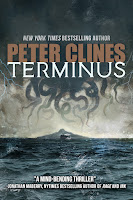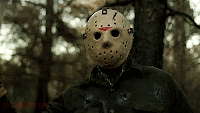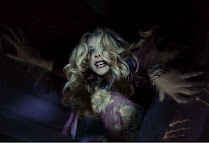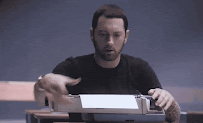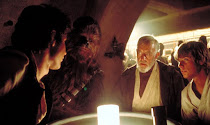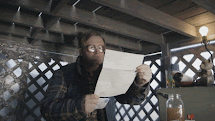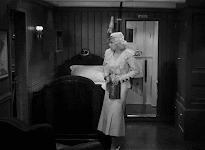There’s an idea I heard once or thrice on movie sets. You may have heard it, too. The KISS principle—an acronym for “Keep It Simple, Stupid.” It’s basically a warning to people not to overcomplicate things just for the sake of overcomplicating them. It’s something I’d see a lot in the film industry, usually with less experienced and/ or very stubborn people. The most common example would be directors who tried to do time-consuming, overly complex shots… just so they could do complex shots.
I’d see it in a lot of screenwriting too, especially in the lower budget stuff I tended to work on. The script would be packed with subplots and B-stories and side threads that… didn’t really serve a purpose. If I was in an angrier state that day (and I’ll be honest, I was angry and frustrated a lot when I worked in the film industry) I tended to call it “padding” or “a waste of time.”
Probably the key thing is that more often than not, the final product was uneven. Episodes would have pacing or tone issues. Sometimes they’d just be confusing because the camera was bouncing around for no apparent reason.

And the thing is, a lot of these shots and subplots and random chunks of dialogue weren’t actually bad. It’s just that they weren’t really relevant to what we were doing. I’ve heard a phrase in gardening that a weed is just the right plant in the wrong place. Well in these examples… it was all weeds.
Okay, what’s my point here? Besides making myself grumbly by remembering certain persons and projects and issues…
Allow me to explain. With a sort of follow-up to the explainer, too.
What’s happening here is the storytellers are getting in their own way. F’r example, with the directors, they’re so hung up on telling the story in a clever way (the overly complex shots) that they’re not focused on actually telling the story. Or, in some cases, they’re actually twisting the story to allow for the clever shot.
With the screenwriters, they’d be packing so many subplots or random conversations into a forty-two minute television episode that none of them really got developed in any way. We’d start dealing with one and then have to rush off to deal with another one before people forgot about it. Or the ideas would collide head on, which led to analyzing the story instead of… y’know, enjoying it.
I’ve talked about this problem before—where a plot or story is just overpacked with ideas. And when this happens, the plot will overwhelm the story or the story will smother the plot or sometimes they’ll just collapse into this mess of well… random plot and story points.
This is a tough idea to grasp when you’re starting out, because it just feels wrong and counterintuitive to everything we’ve been led to believe. If the idea’s good, how can it be wrong for a story? I mean, an idea’s good or it’s not, right?
Truth is, I can have a really, really cool idea and sometimes it just doesn’t work in the tale I’m telling. Maybe it doesn’t fit tonally or maybe it slows things down too much or maybe… it just doesn’t fit. If something’s not driving the plot or the story, if it’s pulling us too far off course, or if it’s just filling space I could use for something else… it probably doesn’t belong there.
I’m a big believer in simplicity for, well, a simple reason. And it’s that we’re always going to complicate things. It’s what we do as storytellers. No matter how basic and straightforward a plot is, we’re always going to come up with interesting details and descriptions and clever subplots and little character quirks. And then all that new material inspires some new descriptions and different subplots and suddenly hey, did you know the barista over there was actually Abraham Lincoln in a past life? No, really, she was. It’s a reverse-Zeno’s paradox, where we’re always getting further and further from the end because we’re always discovering new things to flesh out our world and our characters.
Now, granted, yes, some of this is going to get cut. Maybe a lot of it. So on one level it’s easy to say “so what if I decide to do something super complex?” And believe me, I’m a serious fan of wonderfully complex storytelling.
But I’ll point out that when I start complex, I’m not leaving myself a lot of room to explore and grow. If things are dense from the beginning, it’s going to be harder and harder to discover new character facets and justify clever descriptions or go off on little side-stories for a page or three.
Why is that?
Well, that’s my follow-up thing…
If you’ve been doing this for any amount of time, you’ve probably heard someone say something along the lines of “the story is as long as it needs to be.” And to a large extent, this is true. I can make the story whatever it needs to be. Any length at all. Fifty pages long to five hundred pages long. If I need six books to tell this story correctly, then I need six books. That’s how art works.
But…
The rough reality is that there are a lot of limits on how long a story can be.
Let’s put a few feet between us and books for a minute and think about movies again. I think we all agree full-length movies are generally in the ninety minutes to two hours range. It’s just how it is. When a movie’s only seventy-plus minutes… we feel a bit cheated. It can be really good, but we almost always feel like “That’s it? Only seventy-one minutes?” Likewise, when a film stretches out over two and a half hours, it usually feels pretty excessive. There are a few really great three-hour movies out there, but there’s also a lot of really bloated, desperately-in-need-of-editing ones. So no matter how good it is, if my script isn’t in the 90-130 page range… well, I might get some folks to look at it, but not many professionals are going to consider it seriously. It’ll just be one of those “great but unfilmable” screenplays.

And there are lots of reasons for this. How long a movie is will affect how long it takes to make the movie, which will affect how much it costs to make the movie. Plus, longer movies can’t be screened as many times at a theater, which means money’s going to be slower coming back in. And let’s be honest—how many of us have time to watch a really long movie? No matter how good I hear it is, if I see something’s three hours and twenty minutes long… I’m going to be hesitant to sit down. Hell, I friggin’ loved Avengers: Endgame, but I still haven’t even rewatched it at home. I just don’t have the time.
And if I’m talking about publishing… well, there’s a lot of publishing limits. Paper costs money. And shelf space in book stores is precious. Most publishers don’t want to see a massive, beef-slab of a book unless they know they’re going to sell a lot of copies of it. Even if we’re talking about short stories, most markets only have so much room in their magazine or anthology. If someone’s asking me for three-to-six thousand words, I can’t offer them nine thousand and expect to get an acceptance letter.
Now, I’m sure all that makes a few folks eager to talk about the wonderful freedom of self-publishing. But as I’ve mentioned before, self-publishing means I’m the one making the publisher-level financial decisions. A lot of print on demand sources work off page length to calculate costs, and they’ve got very firm price ranges. Just a few pages this way or that can mean a difference of three or four dollars per copy. And somebody’s got to eat that cost. And it’s not going to be the printer. So it’s either me or my readers.
Some of you may recall this is why I had to cut almost 30,000 words out of my original manuscript for 14. It was with a small press, and the publisher just couldn’t afford to have it stretch into the next page-range. That’s all there was to it. Lose 30K words or it doesn’t get published.
Heck, even if I give up on print and just go with epublishing, check the numbers. Shorter books do better as ebooks, especially from self publishers. The vast number of folks who’ve had any degree of success with ebooks are doing it with books under 100,000 words. I think many of them are under 70,000. The “why” of this is a whole ‘nother discussion we could debate for a while, but for now we just need the simple numbers. Ebooks tend to do better as shorter books.
Y’see, Timmy, storytellers have limited space. Those pages are precious. My words are precious. I don’t want to waste them on irrelevant things. I want them to be moving things along for the plot and for my characters. I want the ideas to work for my story, not to be flexing and contorting my story to accommodate some random ideas.
There’s another phrase you’ve probably heard—kill your darlings. This is kinda like that. I may have the sharpest comeback, the neatest way to explain something, or the most fantastic description of a werewolf, but if it doesn’t work in my story…
Well, then it doesn’t work.
And if it doesn’t work, it probably shouldn’t be there.
Next time, unless someone has a question or request, I’m probably going to talk about leftovers.
Until then… go write.


